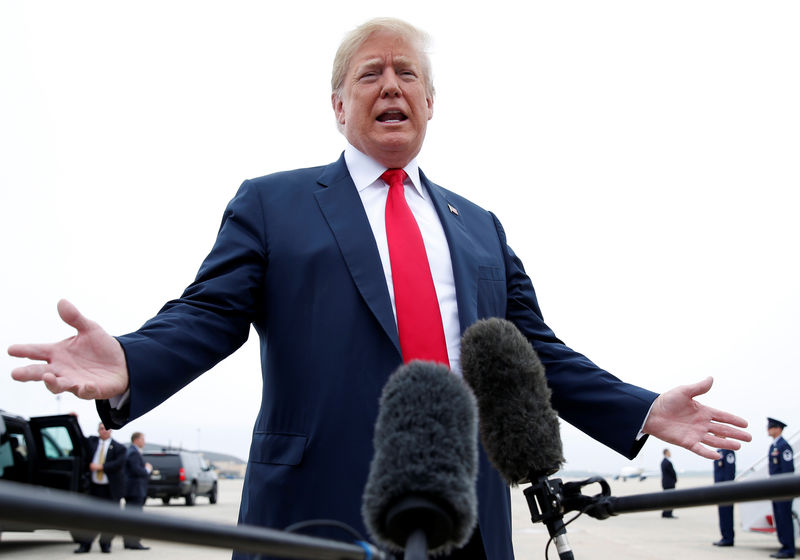(Bloomberg) -- Terms of Trade is a daily newsletter that untangles a world embroiled in trade wars. Sign up here.
President Donald Trump showed little sign that he’s going to back down from new tariffs on more than $110 billion in Chinese imports set to take effect Sunday, blaming American companies for their inability to deal with a trade policy he said is aimed at reining in “unfair players.”
“Badly run and weak companies are smartly blaming these small Tariffs instead of themselves for bad management,” Trump tweeted Friday. “And who can really blame them for doing that? Excuses!”
In a separate Twitter post on Friday, he took aim at the Federal Reserve again, writing that “we don’t have a Tariff problem (we are reigning in bad and/or unfair players), we have a Fed problem.”
Trump has repeatedly attacked the central bank, blaming policymakers for the dollar’s strength and harming the economy by raising interest rates and then moving to cut them too slowly.
U.S. stocks moved between gains and losses as investors weighed the effects of more import tariffs on American households. U.S. consumer sentiment slumped to the lowest level of Trump’s presidency. The University of Michigan’s final sentiment index fell to 89.8 in August from a previously reported 92.1 and 98.4 in July, data showed Friday.
The U.S. is starting a 15% tariff on about $110 billion in apparel, footwear and other Chinese imports Sunday, with same duty on the balance of almost $300 billion in toys, phones and laptops and other products delayed until Dec. 15. Trump is also increasing the levy already in effect on $250 billion in other Chinese goods to 30% from 25% starting Oct. 1, the 70th anniversary of the founding of the People’s Republic of China.
China has vowed additional tariffs on $75 billion of U.S. goods, including soybeans, automobiles and oil, with some taking effect Sunday and the rest Dec. 15 in retaliation.
While it’s unclear who Trump is responding to in his criticism of businesses that blame their problems on tariffs, the largest U.S. business lobby this week urged him and Chinese President Xi Jinping to withdraw from the new tariffs and return to talks in good faith to end the escalating trade war.
“At this moment of uncertainty, it is critical that our leaders take decisive steps to bolster the economy and avoid actions that could turn talk of recession into reality,” Thomas Donohue, chief executive officer of the U.S. Chamber of Commerce, said in a Washington Post opinion piece Thursday.
Other American industry groups were also critical of the escalation.
A coalition of more than 150 trade associations made a last-ditch plea to postpone the duties, saying they “come at the worst possible time” and that holiday purchases will still be affected.
Despite the worsening trade tensions, a large majority of the American companies that are members of the U.S.-China Business Council said they’re committed to China over the long term and don’t plan to leave, according to a survey the group released Thursday.
